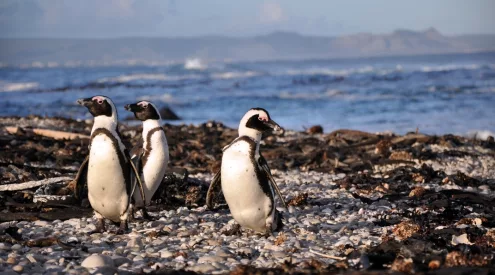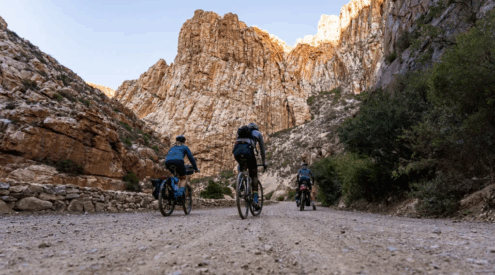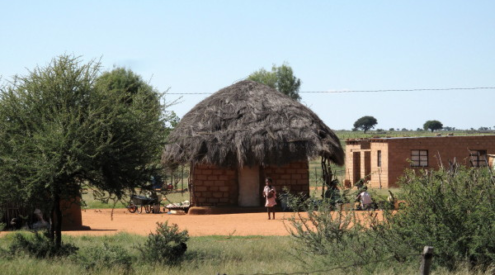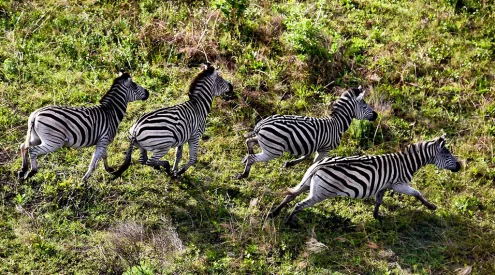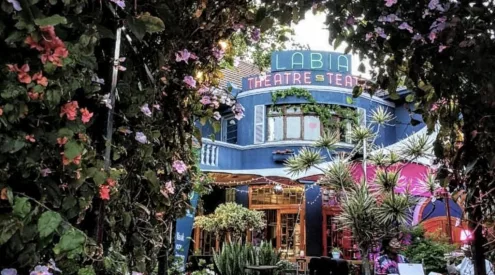A new report by animal welfare organisation FOUR PAWS calls for an end to the breeding of tigers for commercial trade in body parts and derivatives in South Africa, and points out how the government is in effect allowing this industry as a result of poor law enforcement.

FOUR PAWS undertook a number of PAIA requests (requesting a record from a public body) to the National Department for Forestry, Fisheries and the Environment, and each of the provincial departments responsible for environmental affairs. The questions included, for example, how many individual captive big cats (lion, leopard, jaguar and tiger) were held in each province. This was asked to understand the scale of keeping of big cats in the country.
South Africa disregards international CITES law
Between 2011 and 2020, 359 tigers – almost 10% of the global wild tiger population – were exported from South Africa, the report reveals. Buyers are predominantly in China, Thailand and Vietnam and use the flesh, skin and bones for the production of luxury goods and traditional ‘medicine’.
Of the 359 exported live tigers, the report reveals how 255 were said to be exported for the purpose of ‘zoos’. However, FOUR PAWS investigations revealed how traders in South Africa admitted to using this as a loophole – explaining how much easier it is to export live tigers to zoos in Asia than bones or parts.
The conservation group now demands that South Africa end its big cat industry and reverse its role as an exporter of tigers and their parts.
‘Under the convention of CITES [Convention on International Trade in Endangered Species of Wild Fauna and Flora], countries have agreed on a decision that states that tigers should not be intensively bred for trade in their body parts. It is clear that South Africa is allowing tigers and other big cats to be intensively bred for commercial trade in their body parts,’ Kieran Harkin, principal author of the report and Wildlife Trade Expert at FOUR PAWS said.
‘This is unacceptable as the farming of tigers for commercial trade has detrimental effects on wild tiger populations. South Africa is playing a significant role in contributing to the decline of a species that is non-native to Africa. The government needs to shut down this industry to help reverse the decline of all big cats and not just the tiger.’
Fiona Miles, Director of FOUR PAWS in South Africa, commented: ‘National legislation and international agreements should be re-examined since they are clearly not working. We have a responsibility to protect our own threatened species and prevent the exploitation of non-native big cats. If we do not, we put all big cat species at risk of one day, only existing behind bars.’
Government takes action against captive lion hunting and breeding
In May 2021 Minister Barbara Creecy released the report of a high-level panel that was appointed to review policies, regulatory measures, practices and policy positions that are related to hunting, trade, captive keeping, management and handling of elephant, lion, leopard and rhinoceros.
Read the full report here.
‘Halting the captive breeding and domestication of lions is a really positive first step. However, as our report demonstrates, lions aren’t the only big cat species to be captively and intensively bred in South Africa, nor the only big cat species to be commercially traded,’ said Sarah Locke, Head of Programmes at FOUR PAWS in South Africa.
‘Our report shows that four out of the five big cat species are captive bred in South Africa and/or commercially traded in some form, these are lion, tiger, leopard and jaguar (snow leopard being the only species not captive-bred from the country). This is done on a massive scale’ she added.
‘Therefore, we are calling for the South African Government to include not only tigers, but all big cat species in this legislation. This is integral as all big cat trade is interconnected.’
Locke added that there are actually a number of laws that if implemented effectively, would include the protection of tigers. For example, under South Africa’s National Environmental Management and Biodiversity Act, tigers are regarded as an ‘alien species.’ Therefore a person must have a permit to carry out restricted activities related to tigers, including the import, possession or control, breeding, trade of, and, any other prescribed activity.
Locke continued: ‘The breeding of these animals must be stopped immediately to prevent the problem from increasing. A “grandfather clause” should be introduced where current owners can keep the animals but must stop all breeding and let the animals live out their lives in as natural a way as possible, with their welfare needs met. The transitional provisions must include regular audits and duties of inspection by the relevant authorities.’
How can you help end the captive breeding of tigers?
When looking to visit a facility that has big cats, question the motivation of a facility. If the facility allows the touching of juvenile tigers or lions (cub petting), remember that this animal cannot be released into the wild and will always be destined for a life in captivity until a higher profit can be made from their parts.
Always ask questions if there are a large number of juvenile animals at a facility, and ask where the adults go when they are too big to handle at a rehabilitation centre.
Don’t support facilities that offer close interactions, feeding, walking or taking photos with any wild animals. Instead, visit game reserves where animals roam free and where you can enjoy the thrill of not knowing what you’re going to spot when going on a game drive.
In addition, never buy anything made from tiger and big cat parts, including skins and teeth.
FOUR PAWS have launched a petition calling on the government to end the breeding and commercial trade of all big cat species from South Africa here.
The report is available to the public here.
More information about FOUR PAWS can be found here.
Picture: Supplied
ALSO READ

